Whatever young people's educational journeys, as individuals they all have unique personal characteristics just like their physical fingerprints and DNA sequences. An exciting paradigm shift is taking place in education as approaches to teaching and learning become increasingly creative and student-centred, enabling all learners to develop and blossom in their own, special ways.
Just as forensic investigators can identify an individual using DNA (Deoxyribonucleic Acid) to create a genetic profile - a set of numeric values that is exclusive to that person - educators can understand their students by the acid test of their academic attainment and exam outcomes. But looking at test scores is just one part of a child’s personal and social DNA. There are other enlightening elements of the learner’s profile to take into account, such as each individual’s disposition, passions, interests, talents and values. These may not shape league tables, but teaching to this profile can better prepare learners for the modern world.
Education is on the move
As Albert Einstein said, “The world as we have created it, is a process of our thinking. It cannot be changed without changing our thinking.”
Sir Ken Robinson is acutely aware of changes needed and the importance of motivation that is conducive to every single young citizen flourishing. As he says:
“Human resources are like natural resources; they're often buried deep. You have to go looking for them; they're not just lying around on the surface. You have to create the circumstances where they show themselves.”
“The fact is that given the challenges we face, education doesn't need to be reformed - it needs to be transformed. The key to this transformation is not to standardise education, but to personalise it, to build achievement on discovering the individual talents of each child, to put students in an environment where they want to learn and where they can naturally discover their true passions.”
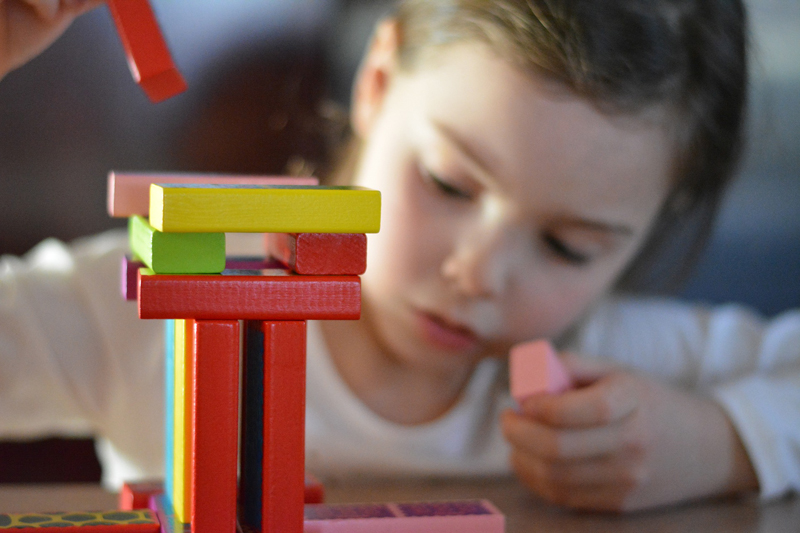
Character development and values
For some time, concern has been growing about whether the education of the current emerging generation of citizens is sufficiently fit for purpose. This is especially bearing in mind the state of the health and wellbeing of so many young people, degradation of the environment, the world they are inheriting, the pace at which various aspects of daily life are evolving, and the qualities needed for the new world of work.
In 2017, the Dame Kelly Holmes Trust held a series of roundtable discussions with a large cross-section of people from politics, education and the youth sector in the UK to address the significance of character development, viewed as an important yet often overlooked part of education today. Countless stakeholders involved in how children are growing up consider that young people need to be better equipped with the tools and skills that enable them to live positive lives. Assisting them in developing strong character traits will support improved academic attainment, employment prospects, workplace productivity and individuals’ contributions to society.
Following this roundtable, in July 2018 a white paper was published: The Opportunities and Challenges offered by Character Education. The first recommendation is that the Department for Education takes the lead in establishing a clear definition for character development and that it should then be applied across Government and communicated effectively to education, business, community and youth-sector organisations.
It is proposed that character development is defined as: when people align their actions with their considered values.
Values define who we are
Just as a DNA profile is extracted from a piece of evidence from the subject, so several aspects of someone’s makeup can be discerned from personally chosen values. This is because our values help to identify what we hold dear, what we consider important, what motivates us and what we prioritise. Together with our beliefs, they are the causal factors that drive our thinking, decision-making and behaviour.
“Creativity is intelligence having fun”
Since character development is key to young citizens flourishing, maximising their potential and living healthy, fulfilling lives of meaning and purpose, what is important now is that time is invested in it as an integral part of each child’s education.
Spiritual, Moral, Social and Cultural (SMSC) development, Personal, Social, Health and Economic (PSHE) education and Citizenship are stepping stones in the right direction but, fundamental to all this progress is quality, systematic values education. To provide clarity and properly reflect each young person’s uniqueness, all learners need regular opportunities to explore and apply values so as to establish for themselves a foundation of ones that feel right and that will be their daily reference points, particularly as they navigate the plethora of challenges they currently face and that they will encounter as their lives and the future unfold.
Educators have the opportunity to creatively embed an awareness of values and their influence on life at home, in school and in wider contexts. In doing so, they will witness the delight shown by the children as they apply the empowering competencies gained and draw on newly acquired capacities that express their own uniqueness. The stimulating process excites curiosity and engenders a general improvement in wellbeing and an eagerness to learn. The exhilarating feeling of authenticity rises as the participants build up their confidence and learn to align their deliberations, choices and actions with their own, personally selected values.
Want to receive cutting-edge insights from leading educators each week? Sign up to our Community Update and be part of the action!
Every member of a school community matters. The physical, mental and emotional wellbeing of young children and adolescents are of paramount importance, but it is also vital that there is an ongoing focus on the welfare of all the adults making up the school community. So which values are needed for everyone in a school community to flourish and feel they are on a meaningful, fulfilling life journey?
“If at first you don’t succeed, try, try, try again.” Schoolchildren’s successes can be brought about with informative, systematic values education that progressively develops and nurtures the whole person. Key to achievement is a mindset intent on mastery through proactively capitalising on learning opportunities that crop up in all contexts.
People everywhere are fast recognising that the ‘Values Revolution’ has truly arrived, and is re-shaping many aspects of our lives as well as our families, schools, businesses and other public and private organisations around us. Savvy teachers will want to ensure they are preparing their young citizens well, and providing quality guidance that creates the foundations for their success now and in the future.
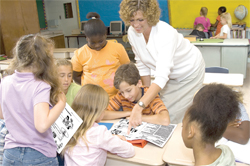
How children and young people feel about themselves has a significant bearing on every aspect of their lives. The more they feel valued, the more likely they are to enjoy their schooldays and be able to succeed in reaching the highest level of their personal achievement.
Schools are expected to offer a stimulating, broad, balanced, relevant and, when appropriate, differentiated curriculum and have high expectations for every single one of their children so that they can achieve success and ultimately, as many of them as possible, have real options open to them when it comes to choosing pathways into their adult lives.
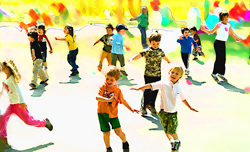
Please imagine the scene: two proud Year 2 pupils showing me Oatlands Infant School in Surrey. Head teacher, Pat Beechy had asked them to talk to me about what the school was doing to show its values. I was taken to the entrance hall to look at a fabulous display depicting the school's values as part of a beautiful tree. I asked them to explain to me what values are and was told by Sam, “Values help us to be happy and keep you out of trouble.” Sophie added, “They help you throughout your life…when you are angry they help you to come into a better mood.” I asked her which value she would think about if she felt angry and after a moment’s reflection she said, “Um…Peace!“
Such a discussion with children is powerful evidence as to why, increasingly, teachers and schools are teaching and modeling positive human values such as respect, trust, tolerance and responsibility.

Education is an investment in children and our collective future. The more informed and joined up our approach to this vital aspect of a child’s development, the more likely the emotional, social, financial, spiritual and physical investments will benefit the individuals, their families, society, communities, nations – indeed the world.
There is a growing emphasis and focus on ensuring that young children are 'school ready' and those progressing from their primary school are 'secondary ready'. When a young person’s compulsory education draws to a close, he or she needs to feel ready to go out into the world.
At this stage, young people are faced with decisions that will significantly impact the rest of their lives, including whether to continue with tertiary education or venture into the workplace.
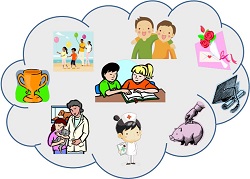
Some people wonder whether in today’s world teachers are proxy parents and, to a degree, social workers. The truth is that children and young people are constantly learning, making understandable mistakes and in need of encouragement in all kinds of settings.
To enable them to flourish and lead happy, healthy and successful lives they require a whole-person, holistic education that opens up their hearts and minds. Supportive home/school partnerships are vital for learners’ wellbeing and the integration of their mental, physical, spiritual, emotional and social development.
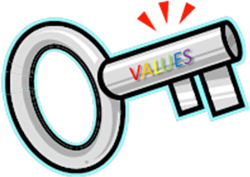
Is there a key to enhancing pupils’ development, elevating their performance and engaging parents and carers in their children’s education? Yes – and it’s superb for promoting best practices and integrating and cementing PSHE education, Citizenship, SEAL and pupils’ SMSC development.
The education of a child is a shared responsibility and effective partnerships - between key adults in children’s home environments (whatever their roles) and members of staff in school environments (whatever their roles) – are invaluable for all concerned. Informed, active collaboration can make a world of difference to children’s successful development.

Teachers have one of the most important roles in society today because of the profound and lasting effects their work has, individually and collectively, on influencing and shaping the lives of young citizens in the making.
Along with parents and carers, teachers are significant role models for children and young people. When youngsters look around and out into the world beyond their school gates, they cannot help but become aware of scandals rocking the fabric of society - to the extent that they wonder what they are eating. High-profile cases make clear how the lives and relationships of some people have disintegrated because they have been tarnished by behaviour based upon undesirable values. For example:

A community-driven platform for showcasing the latest innovations and voices in schools
Pioneer House
North Road
Ellesmere Port
CH65 1AD
United Kingdom